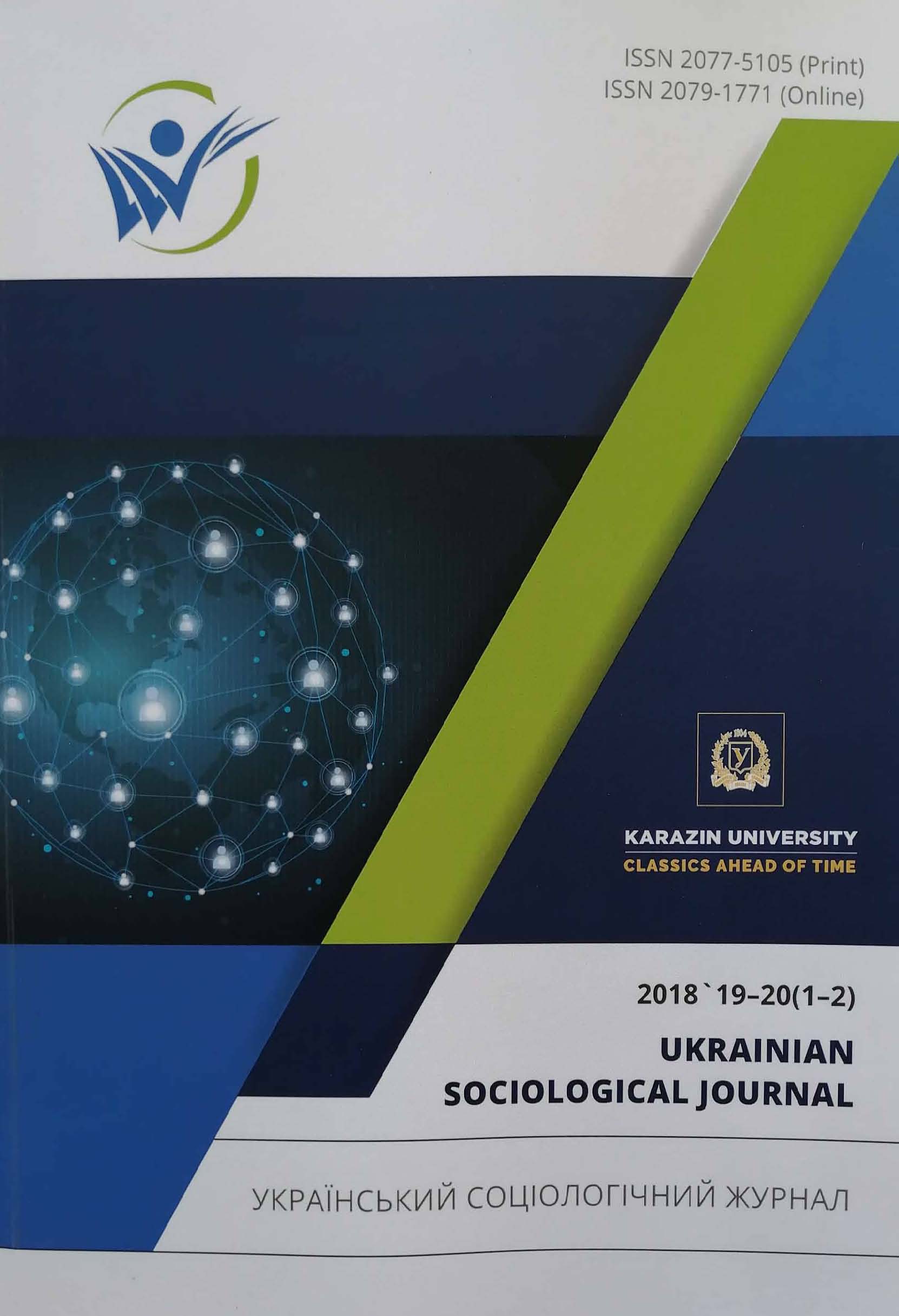Methodical Aspects of Measuring Military Identity
Abstract
The paper presents backgrounding of sociological methodology for measuring the military identity of veterans. There are three types of military identity – stable, situational and unformed – which are compared on the following grounds: identification orientation, commitment to military experience, strength of connection with and rejection from the army, loyalty to military masculine culture, military practices execution, perception of the army as a family or as a professional organization, emotional attachment to the army, a motivational rationale for joining the army, an existential assessment of military service. The stable type of military identity manifests itself in veterans’ commitment to military experience/culture after returning from the army. The situational type of military identity is characterized by “mixed” identification both with the army and with various civilian groups. The unformed type of veterans’ military identity is characterized by a weak form of adherence to military experience and a strong identification with various civilian groups. The peculiarities of psychological methods of measuring military identity are considered, such as the “Warrior Identity Scale” by S. Lancaster, S. Kinchle and S. Castro, and the method of measuring four modifications of military identity (professional, idealistic, warriorism and individualistic) by R. Johansen, D. Laberg and M. Martinusen. It is concluded that in a sociological study, it is necessary to take into account the influence of demographic and social factors on formation of military identity, such as gender, time spent in the army, education level, age of conscription, place of residence, motivation to join the army, marital status and the presence/ absence of traumatic combat experience.
Downloads
References
Батаева Е., Артеменко А. Концепт милитарной идентичности в современной социологии. Вісник ХНУ ім. В. Каразіна. Серія «Соціологічні дослідження сучасного суспільства: методологія, теорія, методи». 2018. Вип. 40. С. 29-35.
Johansen R. B., Laberg J. C. & Martinussen M. Measuring military identity: Scale development and psychometric evaluations. Social Behavior and Personality: An International Journal. 2013. № 41. Р.861–880. doi:10.2224/ sbp.2013.41.5.861
Huntington S. P. The soldier and the State. London: The Belknap Press of Harvard University Press, 1957.
Lancaster S. L., Hart R. P. Military identity and psychological functioning: A pilot study. Military Behavioral Health. 2015. № 3. Р.83–87. doi:10.1080/21635781.2014.995 254
Lancaster S., Kintzle S., Castro C. Validation of the Warrior Identity Scale in the Chicagoland Veterans Study. Identity: International Journal of Theory and Research. 2018. Vol. 18. № 1. Р.34–43. doi.org/10.1080/15283488.2017.1410157
Tajfel H. Social identity and intergroup relations. Cambridge: Camdridge Univ. Press, 1982.
Grimell J. Making dialogue with an existential voice in transition from military to civilian life. Theory & Psychology, 2017. Vol. 27(6). Р. 832–850.
Maringira G., Gibson D., Richters A. ‘‘It’s in my blood’’: the military habitus of former Zimbabwean soldiers in exile in South Africa. Armed Forces Sociology. 2015. №41(1). Р.23–42. doi.org/10.1177/0095327X14523001.
Castano E., Yzerbyt V., & Bourguignon D. We are one and I like it. The impact of entitativity on social identification. European Journal of Social Psychology, 2003. № 33, Р.735–754.
Даниленко О. Інтерпретація ідей А. Шюца при дослідженні ситуації солдата, який повертається додому, в сучасній Україні. Соціологія: теорія, методи, маркетинг. 2018. №1. С.118-133.
Кононов И. Кризис и война как травматические события в биографиях жителей Донбасса. Методологія, теорія та практика соціологічного аналізу сучасного суспільства: зб. наук. праць, 2015. Вип. 21. С.143-156.
Кастано Э., Лейднер Б., Славута П. Процессы социальной идентификации, групповая динамика и поведение комбатантов. Международный журнал Красного Креста. 2008. Т.90. № 870. С.69-87.
Friedman M. J. Posttraumatic Stress Disorder among Military Returnees from Afghanistan and Iraq. American Journal of Psychiatry. 2006. №163(4). Р.586-593.
Батаева Е., Артеменко А. Концептуализация транзита милитарной идентичности в современной социологии. Вісник Національного технічного університету України «Київський політехнічний інститут». Політологія. Соціологія. Право». 2018. № 3. С.19-26.




